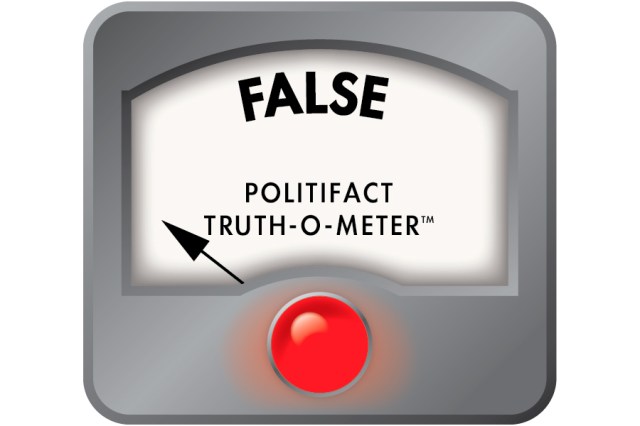Medicare Waiving Copays
Jun 17, 2013 The answer is sometimes. However, providers must be very careful to consider the implications of waiving beneficiary co-pays. Primarily, waiving co-pays may trigger The Anti-Kickback Statute. The Anti-Kickback Statute provides in relevant part. Feb 18, 2021 Medicare copays (also called copayments) most often come in the form of a flat-fee and typically kick in after a deductible is met. A deductible is the amount you must pay out of pocket before the benefits of the health insurance policy begin to pay. Copays for Select Services Waived Through the End of the Year As we continue through the COVID-19 journey together, we want you to know that we are here for you. Our members are our top priority and your good health is our focus. That’s why we continue to cover COVD-19 testing and telehealth visits at zero cost share to our members. Aug 19, 2019 Essentially, waiving copays and deductibles can be seen as a bribe, the intent of which is to induce the patient to accept services from your provider rather than seek them elsewhere. If that is the intent, and your office is found guilty of such misconduct, you could find your office on the receiving end of the punishment outlined above.
Published April 2, 2020
Follow our Medicare Coronavirus News page for related information on coronavirus (COVID-19) and its impact on Medicare beneficiaries.
The Centers for Medicare & Medicaid Services (CMS) mandated in early March that all testing for COVID-19 be covered in full by Medicare and private Medicare insurance carriers. A COVID-19 vaccine will also be covered if and when one becomes available.
Now, some private insurance carriers are going a step further by eliminating cost-sharing for COVID-19 treatment protocols as well.
Cigna, Humana and Aetna have each taken measures to reduce out-of-pocket spending for their Medicare plan members who undergo treatment for the disease. These out-of-pocket costs can include plan deductibles, coinsurance and copayments.
COVID-19 treatment can potentially include inpatient hospital stays, doctor’s office appointments, inpatient skilled nursing facility stays, home health visits and emergency ambulance transportation.
These services can typically come with costs such as copays and deductibles.
With waived coinsurance and deductibles for COVID-19 treatment, savings can add up
Cigna and Humana both waived COVID-19-related cost-sharing for their Medicare Advantage (Medicare Part C) plans.
Medicare Advantage plans cover the same inpatient and outpatient services and items that are covered by Original Medicare (Medicare Part A and Part B).
While Original Medicare is provided by the federal government, private insurance companies administer Medicare Advantage plans.
Some of the out-of-pocket costs that a beneficiary who has Original Medicare may face if they receive covered COVID-19 treatment include:
- Beneficiaries who have Original Medicare and who receive inpatient hospital treatment for COVID-19 will typically have to pay the 2020 Medicare Part A deductible of $1,408 for each benefit period that they receive inpatient care.
There are also Part A daily coinsurance costs for lengthy hospital stays that last longer than 60 days. - Beneficiaries who have Original Medicare and who receive outpatient care must pay the 2020 Part B deductible of $198 per year before Medicare covers the costs of their outpatient care.
After meeting the Part B deductible, beneficiaries typically pay a 20 percent coinsurance or copay for covered services and items.
For members of Medicare Advantage plans from Cigna and Humana, however, those costs will be waived for covered COVID-19 treatment.
United Healthcare Medicare Waiving Copays
“Our customers with COVID-19 should focus on fighting this virus and preventing its spread,” David M. Cordani, President and CEO of Cigna1
“While our customers focus on regaining their health, we have their backs,” David Cordani, President and CEO of Cigna, said in a statement.
Cigna’s cost-sharing waiver expires May 31, 2020.
“We know we’re uniquely positioned to help our members during this unprecedented health crisis,” said Bruce Broussard, President and CEO of Humana. “It’s why we’re taking this significant action to help ease the burden on seniors and others who are struggling right now.”2


Humana’s waivers includes costs related to COVID-19 treatment by both in-network and out-of-network facilities or physicians.
Humana’s cost sharing waivers currently have no end date, as the company plans to readdress the situation as needed.
Aetna, a CVS Health company, is also dismissing COVID-19-related inpatient cost-sharing for its members.
“The additional steps we’re announcing today are consistent with our commitment to delivering timely and seamless access to care as we navigate the spread of COVID-19,” said Karen S. Lynch, president of Aetna Business Unit. “We are doing everything we can to make sure our members have simple and affordable access to the treatment they need as we face the pandemic together.”3
Aetna’s cost-sharing waiver for inpatient admissions to any in-network facility for treatment of COVID-19 is currently in effect until June 1, 2020.
The answer is sometimes. However, providers must be very careful to consider the implications of waiving beneficiary co-pays. Primarily, waiving co-pays may trigger The Anti-Kickback Statute.
The Anti-Kickback Statute provides in relevant part:
Whoever knowingly and willfully offers or pays any remuneration (including any kickback, bribe, or rebate) directly or indirectly…, in cash or in kind, to any person to induce such person to refer an individual [for] any item or service for which payment may be made … under a Federal health care program, … shall be guilty of a felony.42 U.S.C. § 1320a-7b(b).
Basically, the statute prohibits giving anything of value in order to induce referrals for business covered by Medicaid and other federally funded health care programs, and may apply to any transaction between providers and program beneficiaries.
However, the statue does not apply if a health care provider acts without any intent to induce improper referrals. In addition, the provider must know about the law, and act “with the specific intent to violate the law.” Hanlester Network v. Shalala, 51 F.3d 1390 (9th Cir. 1995).
Thus, actions taken in good faith for the benefit of patients or program beneficiaries without any improper intent to generate referrals or violate the law do not implicate Anti-Kickback.

The Department may examine any transaction that could generate improper referrals, especially those in which a provider offers free or discounted items or services to program beneficiaries, or those that would otherwise promote over-utilization or create a risk of fraudulent claims. See OIG Special Advisory Bulletin, Offering Gifts and Other Inducements to Beneficiaries (8/02).
Copays and deductibles help discourage unnecessary services and lower the cost of government programs. A provider’s routine waiver of copays and deductibles may create an incentive to over-utilize program resources and violate the Anti-Kickback Statute. See OIG Special Fraud Alert (12/94).

The OIG has set out some safe harbor guidelines. Waiving Medicaid and Medicare copays or deductibles does not violate the Anti-Kickback Statute if:
- the waiver is not offered as part of any advertisement or solicitation;
- the provider does not routinely waive coinsurance or deductibles; and
- the provider waives the coinsurance and deductibles after determining in good faith that the individual is in financial need or reasonable collection efforts have failed.
The beneficiary’s “financial need” will depend on the individual’s circumstances. Providers should have a written policy and guidelines in place showing consideration of factors such as the local cost of living, the patient’s income, assets and expenses, and the scope and extent of the patient’s medical bills. The documentation of financial need should be placed in that patient’s file to prove that the analysis was undertaken and the policy was followed. In addition, collection should always be attempted.
Humana Medicare Waiving Copays
By taking these factors into consideration, a Provider may greatly reduce the risk of being flagged for fraudulent waiver of copays.
For more information, contact DJ Jeyaram at DJ@Jeylaw.com or 678.325.3872.
